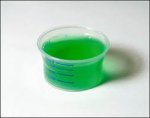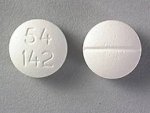Suboxone contains a combination of buprenorphine and naloxone. Buprenorphine is an opioid medication. Buprenorphine is similar to other opioids such as morphine, codeine, and heroin however, it produces less euphoric ("high") effects and therefore may be easier to stop taking.
Naloxone blocks the effects of opioids such as morphine, codeine, and heroin. If Suboxone is injected, naloxone will block the effects of buprenorphine and lead to withdrawal symptoms in a person with an opioid addiction. When administered under the tongue as directed, naloxone will not affect the actions of buprenorphine.
Suboxone can cause death from overdose, especially if it is injected with a tranquilizer. Use this medicine exactly as directed by your doctor.
Suboxone can cause drug dependence. This means that withdrawal symptoms may occur if you stop using this medication too quickly. Withdrawal symptoms may also occur at the start of treatment due to dependence on another drug. Suboxone is not for occasional ("as needed") use. Do not stop taking Suboxone without first talking to your doctor. Your doctor may want to gradually reduce the dose to avoid or minimize withdrawal symptoms.
In an emergency, have family members tell emergency room staff that you are taking Suboxone and that you are dependent on opioids.
Use caution when driving, operating machinery, or performing other hazardous activities. Suboxone may cause drowsiness, dizziness, or impaired thinking. If you experience drowsiness, dizziness, or impaired thinking, avoid these activities. Avoid alcohol while taking this medicine. Alcohol may dangerously increase drowsiness and dizziness caused by the medication.
Suboxone may dangerously increase the effects of other drugs that cause drowsiness, including antidepressants, alcohol, antihistamines, sedatives (used to treat insomnia), other pain relievers, anxiety medicines, and muscle relaxants. Tell your doctor about all medicines that you are taking, and do not take any other prescription or over-the-counter medicine, including herbal products, without first talking to your doctor.
Naloxone blocks the effects of opioids such as morphine, codeine, and heroin. If Suboxone is injected, naloxone will block the effects of buprenorphine and lead to withdrawal symptoms in a person with an opioid addiction. When administered under the tongue as directed, naloxone will not affect the actions of buprenorphine.
Suboxone can cause death from overdose, especially if it is injected with a tranquilizer. Use this medicine exactly as directed by your doctor.
Suboxone can cause drug dependence. This means that withdrawal symptoms may occur if you stop using this medication too quickly. Withdrawal symptoms may also occur at the start of treatment due to dependence on another drug. Suboxone is not for occasional ("as needed") use. Do not stop taking Suboxone without first talking to your doctor. Your doctor may want to gradually reduce the dose to avoid or minimize withdrawal symptoms.
In an emergency, have family members tell emergency room staff that you are taking Suboxone and that you are dependent on opioids.
Use caution when driving, operating machinery, or performing other hazardous activities. Suboxone may cause drowsiness, dizziness, or impaired thinking. If you experience drowsiness, dizziness, or impaired thinking, avoid these activities. Avoid alcohol while taking this medicine. Alcohol may dangerously increase drowsiness and dizziness caused by the medication.
Suboxone may dangerously increase the effects of other drugs that cause drowsiness, including antidepressants, alcohol, antihistamines, sedatives (used to treat insomnia), other pain relievers, anxiety medicines, and muscle relaxants. Tell your doctor about all medicines that you are taking, and do not take any other prescription or over-the-counter medicine, including herbal products, without first talking to your doctor.








